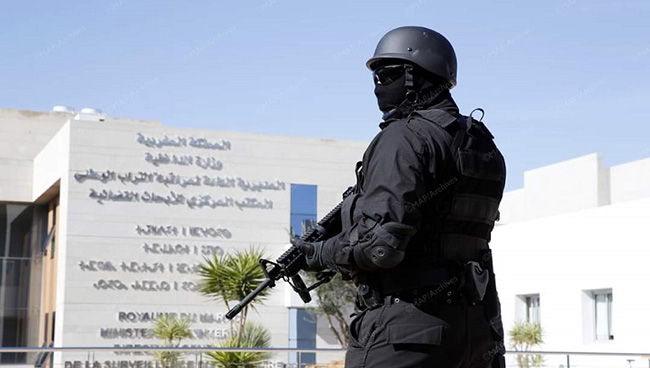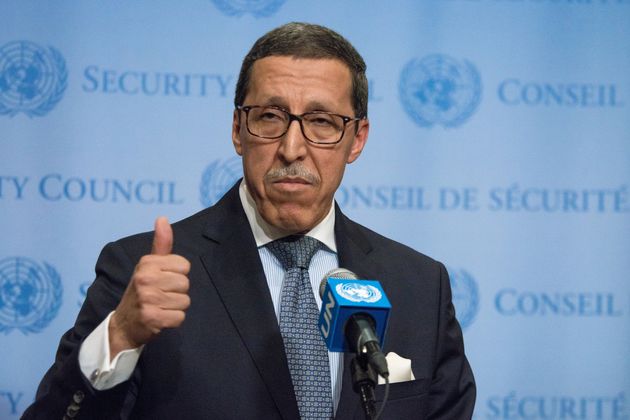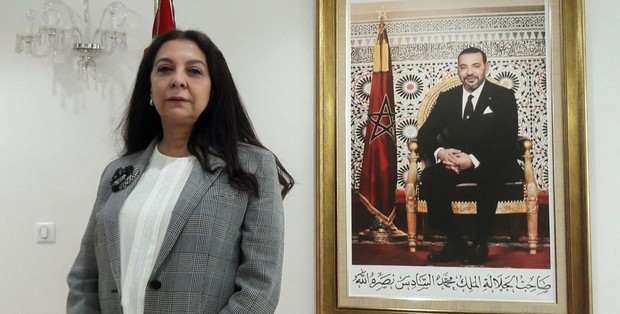The massive projects that Morocco is undertaking in the Sahara to boost the region's economic dynamism are attracting significant international attention due to their anticipated substantial impact on the economic landscape, not only in the Sahara but also in neighboring countries, especially the Sahel.
In this context, the Spanish official news agency "EFE" published a report on Morocco's efforts to turn the Sahara into a major economic hub through large-scale projects, most notably the Dakhla Atlantic Port project and the highway connecting Tiznit and Dakhla.
According to the Spanish agency's report published last Saturday, Morocco has accelerated the construction pace of the Dakhla Atlantic Port, with 20% of the work completed so far. Companies are currently engaged in continuous work to complete the port, which will be divided into three sections: the commercial port, the fishing port, and the shipyard.
The agency mentioned that Morocco has allocated a budget of 13 billion dirhams for the construction of this port, which is expected to be completed by 2028. The Dakhla Atlantic Port project is one of the largest investment projects initiated by Morocco after the COVID-19 pandemic.
Simultaneously, as the Dakhla Atlantic Port project progresses, the Spanish news agency highlighted that Morocco is also working on another major project, the Tiznit-Dakhla highway. This project aims to enhance land trade between Morocco and several African countries and serve as a corridor linking Africa and Europe in commercial relations.
This project is expected to be completed by the end of this year, as revealed by the Minister of Equipment and Water, Nizar Baraka, during his recent participation in a parliamentary session, where he stated that the highway's full connection process is nearly complete.
Previous international media reports on this project have indicated that the highway will significantly impact trade relations between Morocco, Mauritania, and other West African countries, especially as Morocco plans to connect this highway to the El Guergurat border crossing with Mauritania.
According to a report by the economic newspaper "Menfn," which focuses on global and Middle Eastern affairs, this project, with an estimated cost of 9 billion dirhams, will "change the economic landscape" in the region. It will link the economic hubs in the kingdom and strengthen Morocco's position as a transit point for trade between Europe and West Africa.
Similarly, the "Middle East Online" newspaper expects that this 1,055-kilometer project will have a significant impact on social and economic development in Morocco and support Rabat's role in enhancing its position as a bridge between Africa and Europe.
These major projects in the southern provinces of the kingdom are part of the economic development of the Moroccan Sahara, while also laying the groundwork for the Atlantic initiative announced by King Mohammed VI last year for the benefit of Sahel countries.
This was mentioned in the speech delivered by King Mohammed VI on the occasion of the 48th anniversary of the Green March, where he affirmed Morocco's readiness to offer its support by providing road, port, and rail infrastructure to Sahel countries to access the Atlantic facade to develop their trade and economy.
On December 23, 2023, Morocco signed an agreement with four Sahel countries—Burkina Faso, Mali, Niger, and Chad—which is considered the initial step to implement the royal initiative. These countries have recently reiterated their praise for this initiative and their desire to engage in it to bring it to fruition.






